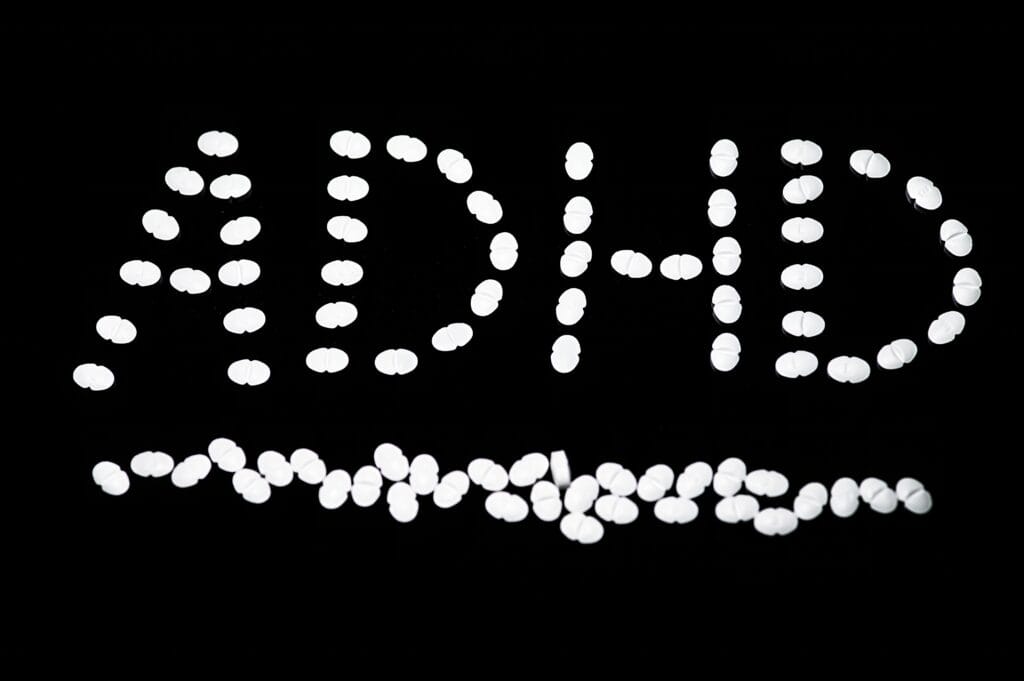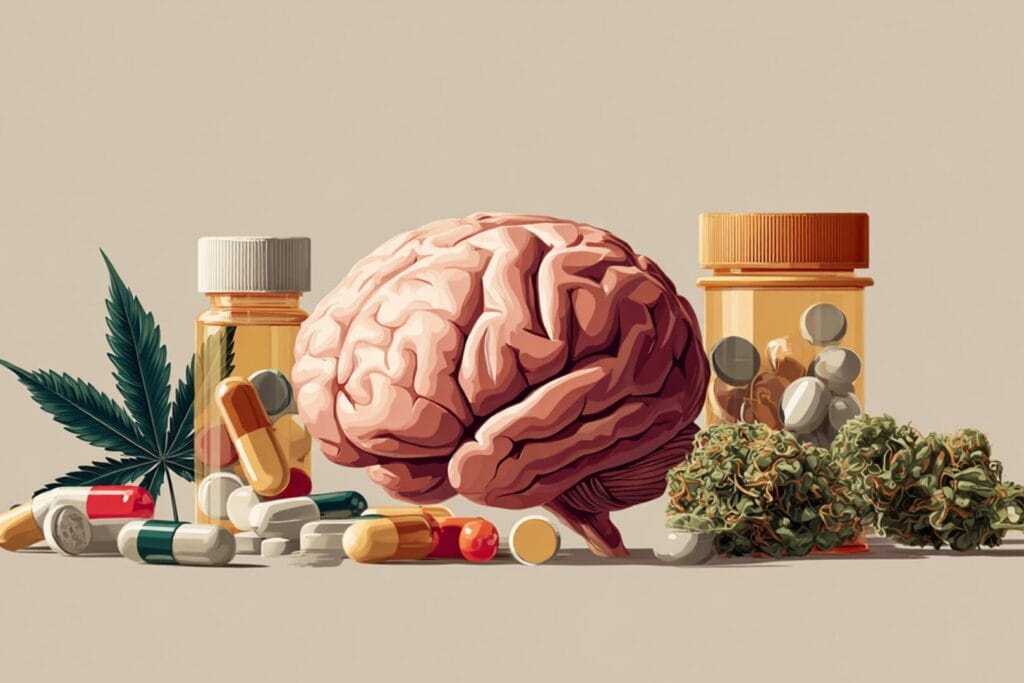The conversation surrounding attention-deficit hyperactivity disorder, or ADHD, tends to focus on challenges like inattention, impulsivity, and hyperactivity. There’s another side to the story that doesn’t always get the attention it deserves, though—how ADHD intersects with addiction.
Whether it’s substance abuse, compulsive behaviors or other addictive patterns, people with ADHD are often at higher risk.
The connection between ADHD and addiction can be complex. Each condition can potentially fuel the other.
The Development and Effects of ADHD
ADHD is a disorder that typically starts in childhood and can continue into adulthood. The symptoms can affect school and work performance and personal relationships.
There are a combination of causes that are thought to contribute to the development of ADHD.
For example, there is likely a genetic component, with ADHD tending to run in families. Certain genes are involved in neurotransmitter regulation, especially dopamine, linked to ADHD. These genes can affect how the brain processes motivation and rewards, often areas of difficulty when you have ADHD.
There are differences in the brain’s structure and functions associated with ADHD. These differences are especially notable in the areas related to impulsive control, attention and executive function. The prefrontal cortex is an example. It’s responsible for executive functions, and it tends to develop more slowly when you have ADHD.
Environmental factors can also contribute to ADHD development, like prenatal toxin exposure or low birth weight.
There are several ways ADHD affects the brain and behavior, including:
- Problems maintaining focus.
- Impulse control problems, so you might struggle to consider the consequences of actions before acting on them.
- Hyperactivity isn’t present in all types of ADHD but can be a key symptom. It’s thought to be due to increased brain activity in areas controlling physical movement and motor function.
- Executive function is the brain’s ability to manage time, prioritize and plan. ADHD can impair this function, causing organizational problems, difficulty completing tasks, and forgetfulness.
The effects of ADHD can make daily life challenging. If you have ADHD, you might face frustration with tasks requiring focus or organization, struggle at school or work, and it can even strain relationships with other people.
However, a range of treatment options are available. These include behavioral therapy, medication, and educational and workforce support. Lifestyle changes like getting enough rest and eating a healthy diet can help, as can practicing mindfulness and relaxation strategies.
What’s the Relationship Between ADHD and Addiction?
The relationship between ADHD and addiction has various factors as to why someone with the disorder may be more susceptible to abusing substances.
Self-Medication
If you have ADHD, you might deal with symptoms like restlessness and impulsivity, and it can feel overwhelming and tough to manage these.
In some cases, you could find yourself turning to substances to self-medicate and temporarily get rid of these symptoms. The calming or focusing effects of certain substances can seem appealing.
For example, alcohol could be a way to slow down racing thoughts.
Since symptom relief is temporary, you might find that you continue using substances to maintain a sense of control, eventually contributing to dependence and addiction.
Impulsivity and Risky Behaviors
A core symptom of ADHD is impulsivity. That can drive you to engage in risky behaviors without considering the consequences. Impulsivity can make you more likely to experiment with substances and less likely to be able to stop after you start.
Because of impulsivity, if you have ADHD, you might start using drugs or alcohol at an early age. That’s a risk factor for addiction.
Impulsivity can also lead to binge behaviors where you’re consuming large amounts of substances over short periods, heightening the risk of addiction.
Dopamine Dysregulation
ADHD is associated with dopamine dysregulation, and this is the neurotransmitter that’s crucial in pleasure, reward and motivation. Most addictive substances raise your dopamine levels, and that’s what creates the high or euphoria associated with them. If you have ADHD, you might crave this elevation because your baseline dopamine levels are lower than normal.
The pleasure and motivation you naturally lack can lead to repetitive use of addictive substances that increase dopamine.
Once addiction develops, your dopamine pathways are altered, and that can make it harder if you have ADHD to quit substances. Your brain may be reliant on external dopamine production that’s provided by addiction.
Other Mental Health Issues
ADHD tends to co-occur with other mental health disorders. Having multiple co-occurring disorders can make substance use a more likely coping mechanism.
You could turn to substances to manage not just ADHD but symptoms of other conditions, and that’s going to raise the risk of addiction.
Having multiple mental health challenges can lead to more severe substance use as you try to self-regulate what’s a complex emotional and mental state.
Social and Environmental Factors
The social and environmental challenges you might face when you have ADHD, like academic challenges, social rejection or work struggles, can lead to feelings of stress, shame or inadequacy, as well as low self-esteem. These are substance use risk factors.
Other Things to Know About ADHD and Addiction
Along with what’s above, other insights that might be helpful if you’re struggling with ADHD and addiction or you have a loved one who is included:
- ADHD can both mask or mimic symptoms of addiction. This overlap can potentially complicate diagnosis and treatment.
- Early ADHD diagnosis and treatment can significantly reduce the risk of developing addiction later.
- Treatment should address both conditions simultaneously. This is a dual diagnosis approach. Treating just one condition without the other leads to less effective outcomes.
- Medication choices have to be mindful of the potential for addiction. Stimulant medicines are highly effective in treating ADHD, for example, but also have the potential for abuse, especially in people with a predisposition to addiction.
- Support systems are crucial if you’re dealing with both ADHD and addiction. Support systems provide you with encouragement, accountability and assistance in managing daily challenges.
- Lifestyle changes like regular exercise and a healthy diet can go a long way in helping manage ADHD symptoms and also reducing the risk of addiction.
Take the First Step Today
San Diego Detox is uniquely positioned as one of the best treatment programs if you’re dealing with co-occurring ADHD and addiction. We offer comprehensive dual diagnosis treatment to simultaneously address multiple conditions.
Our treatment plans tackle the root causes of both ADHD and addiction to ensure we’re fully addressing all aspects of mental health for each individual. Reach out to learn more about our programs today.







